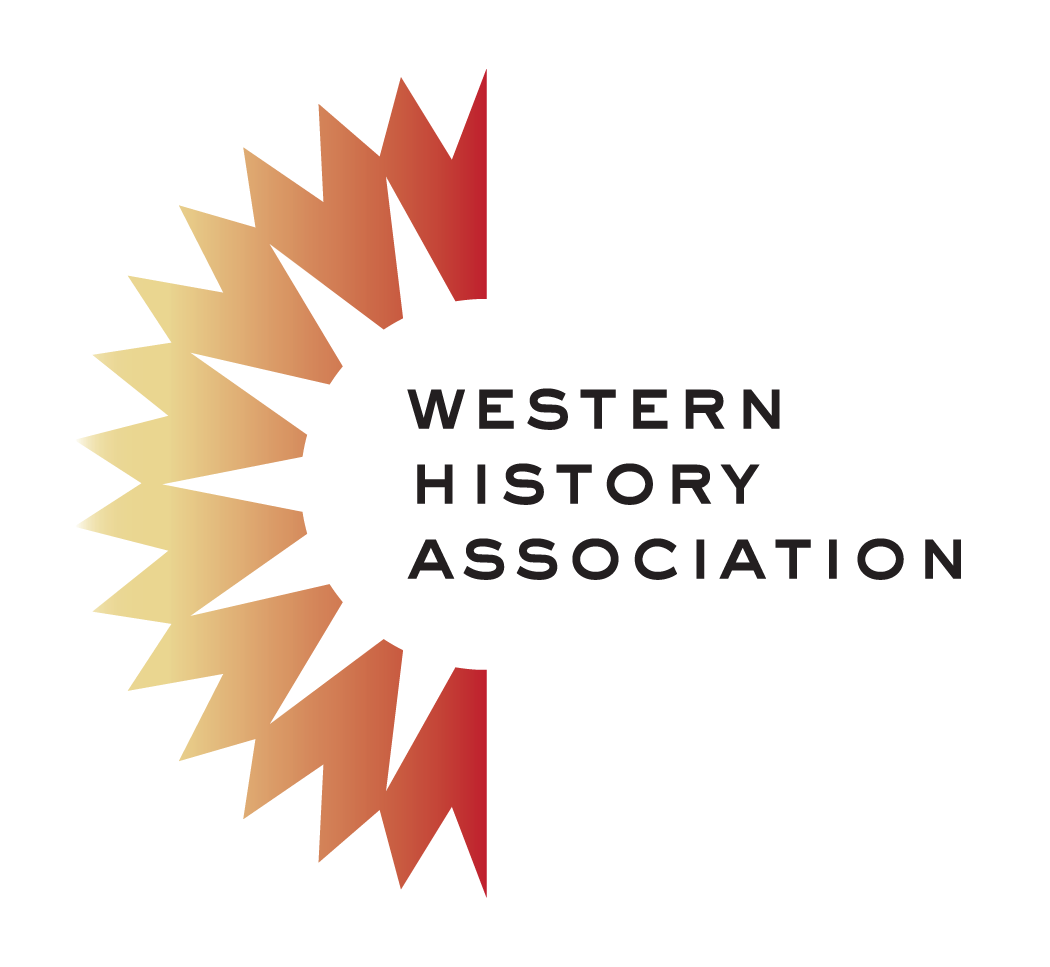|
PAST RECIPIENTS:
ARRELL M. GIBSON AWARD
2025 | Andrew Fisher, “What Land Back Looks Like: The Yakama Nation’s 160-Year Fight for Tract D,” Oregon Historical Quarterly (Winter 2024) |and| Kathleen Whiteley, "History on the Lost Coast: Locating Wiyot Stories of Resilience in Nancy and Matilda Spear,” American Historical Review (December 2024)
2024 | Maurice Crandall, “Captive Cousins: Hoomothya, Wassaja, and a Lifetime of Unwellness,” Western Historical Quarterly (Summer 2023)
2023 | Holly Miowak Guise, “‘Who is Doctor Bauer?’: Rematriating a Censored Story on Internment, Wardship, and Sexual Violence in Wartime Alaska, 1941-1944,” Western Historical Quarterly (Summer 2022)
2022 | Stephen Hausmann, "Erasing Indian Country: Urban Native Space and the 1972 Rapid City Flood," Western Historical Quarterly (Autumn 2021)
2021 | Robert Lee and Tristan Ahtone, "Land-Grab Universities," High Country News (March 2020)
2020 | Doug Kiel, “Nation v. Municipality: Indigenous Land Recovery, Settler Resentment, and Taxation on the Oneida Reservation,” Native American and Indigenous Studies Journal (Fall 2019)
2019 | Rodger C. Henderson, “The Piikuni and the U.S. Army's Piegan Expedition: Competing Narratives of the 1870 Massacre on the Marias River,” Montana: The Magazine of Western History (Spring 2018)
2018 | Monika Bilka, "Klamath Tribal Persistence, State Resistance: Treaty Rights Activism, the Threat of Tribal Sovereignty and Collaborative Natural Resource Management in the Pacific Northwest," Western Historical Quarterly (Autumn 2017)
2017 | Brianna Theobald, “Nurse, Mother Midwife: Susie Walking Bear Yellowtail and the Struggle for Crow Women's Reproductive Autonomy,” Montana The Magazine of Western History (Fall 2016)
2016 | Allyson Stevenson, “The Adoption of Frances T: Blood, Belonging, and Aboriginal Transracial Adoption in Twentieth Century Canada,” The Canadian Journal of History (Winter 2015)
2015 | Khalil Johnson, “The Chinle Dog Shoots: Federal Governance and Grass-roots Politics in Postwar Navajo Country,” Pacific Historical Review (February 2014)
2014 | Sarah M.S. Pearsall, “Having Many Wives in Two American Rebellions,” American Historical Review (October 2014)
2013 | Steven Sabol, “Comparing American and Russian Internal Colonization: The ‘Touch of Civilisation’ on the Sioux and Kazakhs,” Western Historical Quarterly (Spring 2012)
2012 | Jesse Schreier, “Indian or Freedman?: Enrollment, Race and Identity in the Choctaw Nation,” Western Historical Quarterly (Winter 2011)
2011 | Khal Schneider, “Making Indian Land in the Allotment Era: Northern California's Indian Rancherias,” Western Historical Quarterly (Winter 2010)
2009 | Benjamin Madley, “California‘s Yuki Indians: Defining Genocide in Native American History,” Western Historical Quarterly (Autumn 2008)
2007 | Dr. Paul C. Rosier, “’They Are Ancestral Homelands’: Race, Place, and Politics in Cold War Native America, 1945-1961,” Journal of American History (March 2006)
2006 | Margaret D. Jacobs, “Material Colonialism: White Women and Indigeneous Child Removal in the American West and Australia, 1880-1940,” Western Historical Quarterly (Winter 2005)
2005 | Jessica R. Cattelino, “Casino Roots: The Cultural Production of Twentieth-Century Seminole Economic Development,” in Colleen O‘Neill and Brian Hosmer, eds., Native Pathways: American Indian Culture and Economic Development in the Twentieth Century (University Press of Colorado, 2004)
2004 | Pekka Hämäläinen, “The Rise and Fall of Plains Indian Horse Cultures,” Journal of American History (December 2003)
2003 | Thomas G. Andrews, “Turning the Tables on Assimilation: Oglala Lakotas and the Pine Ridge Day Schools, 1889-1920s,” Western Historical Quarterly (Winter 2002)
2002 | Andrew Fisher, “They Mean to Be Indian Always: The Origins of Columbia River Identity, 1860-1885,” Western Historical Quarterly (Winter 2001)
2001 | Paige Raibmon, “Theatres of Contact: The Kwakwada ‘wakw Meet Colonialism in British Columbia and at the Chicago World‘s Fair,” Canadian Historical Review (June 2000)
2000 | James F. Brooks, “Violence, Justice and State Power in the New Mexican Borderlands, 1780-1880,” in Richard White and John M. Findley, editors, Power and Place in the North American West (Seattle: University of Washington Press, 1999)
1999 | Elliott West, “Called Out People: They Cheyennes and the Central Plain,” Montana: The Magazine of Western History (Summer 1998)
1998 | Nancy Shoemaker, “How Indians Got to be Red,” American Historical Review (June 1997)
1997 | Gregory Evans Dowd, “The Panic of 1751: The Significance of Rumors on the South Carolina-Cherokee Frontier,” William and Mary Quarterly (July 1996)
BACKGROUND:
ARRELL M. GIBSON
Arrell M. Gibson (1921-1987) was a historian and author specializing in the history of Oklahoma. He earned a B.A. from Missouri Southern State College, an M.A. (1948) and Ph.D. (1954) from the University of Oklahoma. He was professor of history and government at Phillips University in Enid and at the University of Oklahoma in Norman. His works include: Oklahoma: A History of Five Centuries (University of Oklahoma Press 1965, 1981), The Oklahoma Story (University of Oklahoma Press 1978), and other histories of the state. Gibson served as the Oklahoma Center for the Book's first president, and the Center named its highest award in honor of the Norman historian. Seven of the 21 authors on the official Literary Map of Oklahoma are recipients of the Arrell Gibson Lifetime Achievement Award. It is given annually to an Oklahoman for a body of literary work. Gibson died in Norman November 30, 1987.

.png)
.png)

